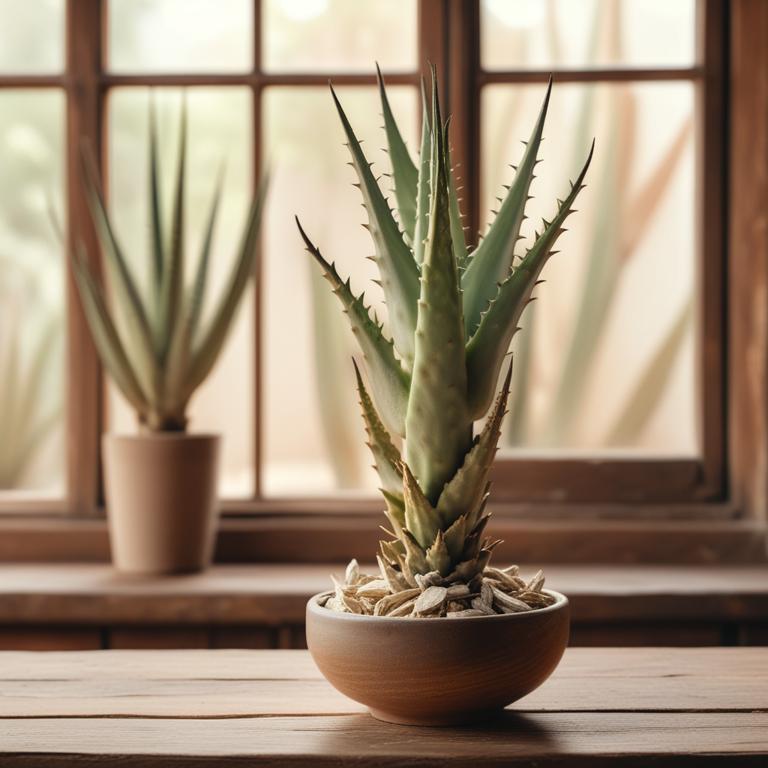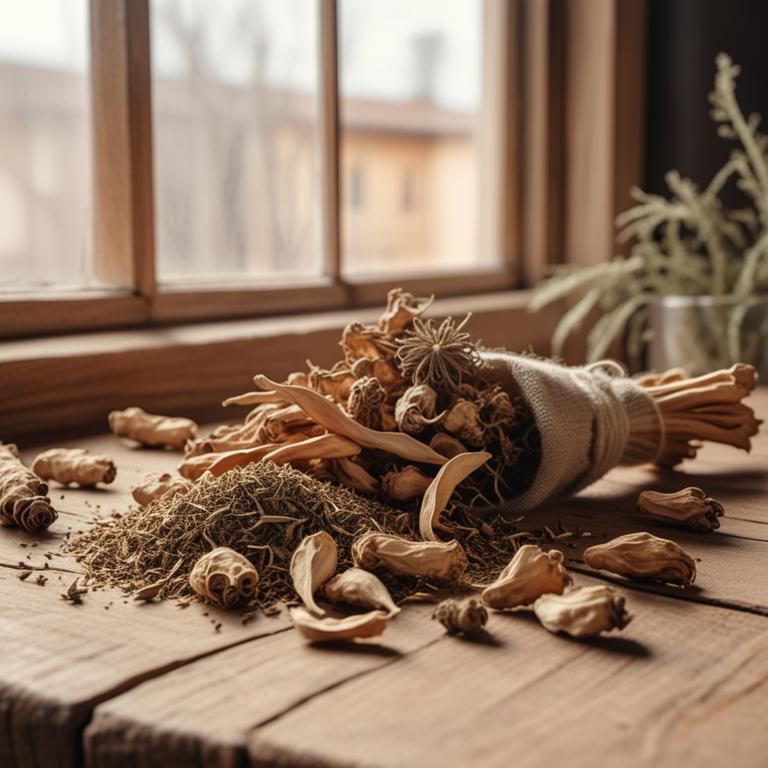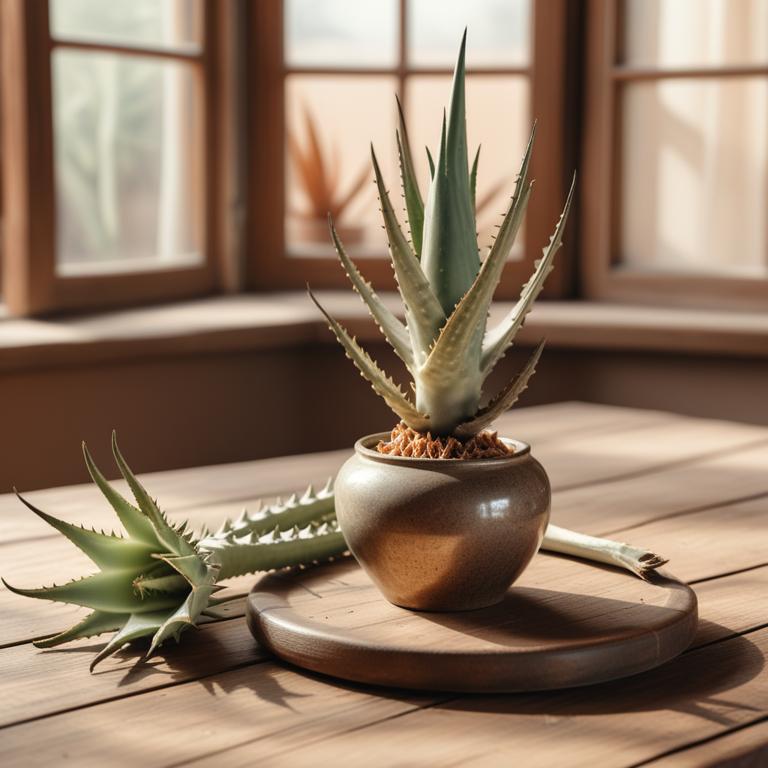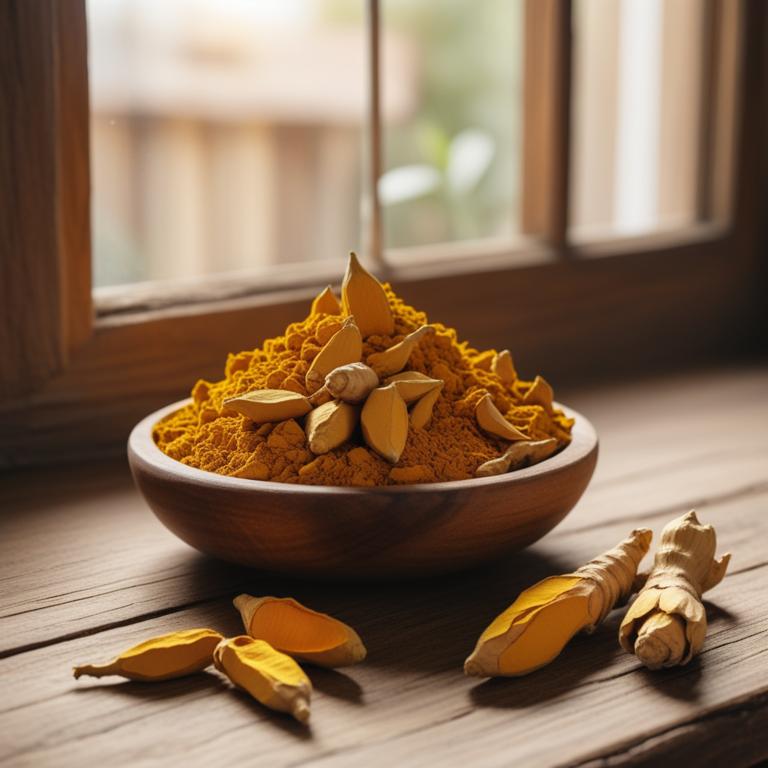Updated: Dec 1, 2024
The Causes of Ingrown Hair and How Herbal Preparations Can Help

Ingrown hair is a common problem that affects many people.
It happens when a hair grows back into the skin instead of out of it, causing redness, swelling, and sometimes even pus. This can be painful and uncomfortable, especially in areas like the armpits, legs, and bikini area. Ingrown hair can also lead to scarring and dark spots, which can be frustrating and affect a person's self-esteem. Ingrown hair is usually caused by shaving, waxing, or tweezing, which can cause the hair to grow back into the skin. Other causes include curly or coarse hair, tight clothing, and poor skin care.
There are some herbs that can help to heal and prevent ingrown hair. Tea tree oil, for example, has antibacterial properties that can help to reduce inflammation and prevent infection. Aloe vera gel is also soothing and can help to calm the skin. Chamomile tea can be used to make a warm compress to help to bring the ingrown hair to the surface, making it easier to remove. To use these herbs, you can try making a tea with chamomile and drinking it to help to calm your skin from the inside out. You can also apply aloe vera gel directly to the affected area to soothe and calm the skin.
Mix tea tree oil with a carrier oil like coconut oil and apply it to the ingrown hair to help to reduce inflammation.
Table of Contents
- What are the reasons for the occurrence of ingrown hair?
- What are the benefits of using herbal remedies for ingrown hair?
- Which medicinal herbs are used to address ingrown hair?
- Which herbal preparations are commonly employed to alleviate ingrown hair?
- Should you avoid using certain herbs if you have ingrown hair?
- FAQ
What are the reasons for the occurrence of ingrown hair?
The main causes of ingrown hair are closely linked to how our hair grows and interacts with our skin.
One of the main causes is friction, which occurs when clothing or accessories rub against the skin, causing hair to grow into the skin instead of out of it. This can happen with tight pants, underwire bras, or even a backpack strap. Another cause is genetics - if someone in your family has ingrown hairs, you're more likely to get them too. This is because our body's hair growth patterns can be influenced by our family's traits, and some people may naturally have hair that grows more inwardly or curly.
Curly hair is also a significant contributor to ingrown hairs. When curly hair grows, it can twist and turn as it exits the skin, leading to a higher chance of ingrowth. This is because the curly shape of the hair follicle can cause the hair to curl back into the skin instead of growing outward. Finally, shaving is a common cause of ingrown hairs. When you shave, you're essentially cutting the hair at an angle, which can cause the hair to grow back into the skin instead of out of it.
This is especially true for people who shave frequently or use a dull razor, as the hair can become trapped and lead to ingrowth.
What are the benefits of using herbal remedies for ingrown hair?
Using herbs to treat ingrown hairs can be really helpful.
One of the main benefits is that they can reduce inflammation and redness, which are common symptoms of ingrown hairs. These herbs have anti-inflammatory properties that can soothe the skin and make it feel better. They can also help to dry out the ingrown hair, making it less painful and less likely to get infected.
Additionally, some of these herbs have antibacterial properties that can fight off any infections that may be present. This can help to prevent the ingrown hair from becoming more serious and even lead to scarring. Some herbs can also help to reduce the size of the ingrown hair, making it less noticeable.
They can also promote healing and prevent scarring, which can be beneficial for people with sensitive skin.
Which medicinal herbs are used to address ingrown hair?
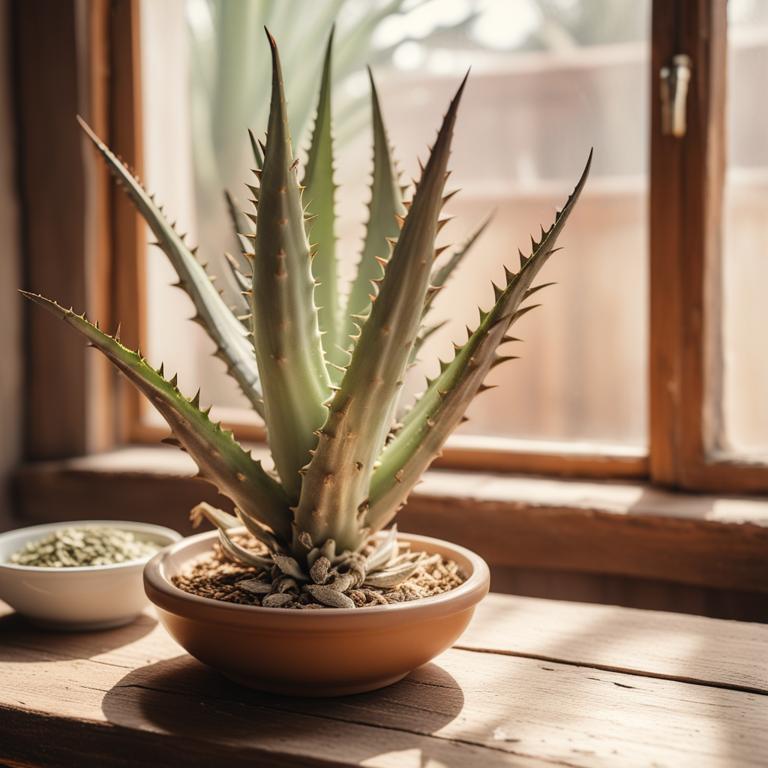
Herbs can be a great way to help with ingrown hair.
One of the best herbs for this issue is Aloe barbadensis, also known as aloe vera. It's anti-inflammatory properties can help reduce redness and swelling caused by ingrown hairs. It also contains compounds that help soothe and calm irritated skin. Calendula officinalis, or marigold, is another herb that can help. It has antimicrobial properties that can help prevent infection and promote healing. This can help reduce the risk of ingrown hairs becoming more serious.
Melaleuca alternifolia, or tea tree oil, contains a compound called terpinen-4-ol, which has antibacterial properties. This can help prevent infection and promote healing, just like calendula. Aloe vera is also great for ingrown hair because it can help soften and remove dead skin cells that can cause ingrown hairs. It's also very soothing and can help reduce inflammation and redness. Finally, Urtica dioica, or nettle leaf, is an herb that can help reduce inflammation and promote healing. It also has antimicrobial properties that can help prevent infection.
When used in combination with other herbs, it can be a powerful tool for helping with ingrown hair.
Which herbal preparations are commonly employed to alleviate ingrown hair?
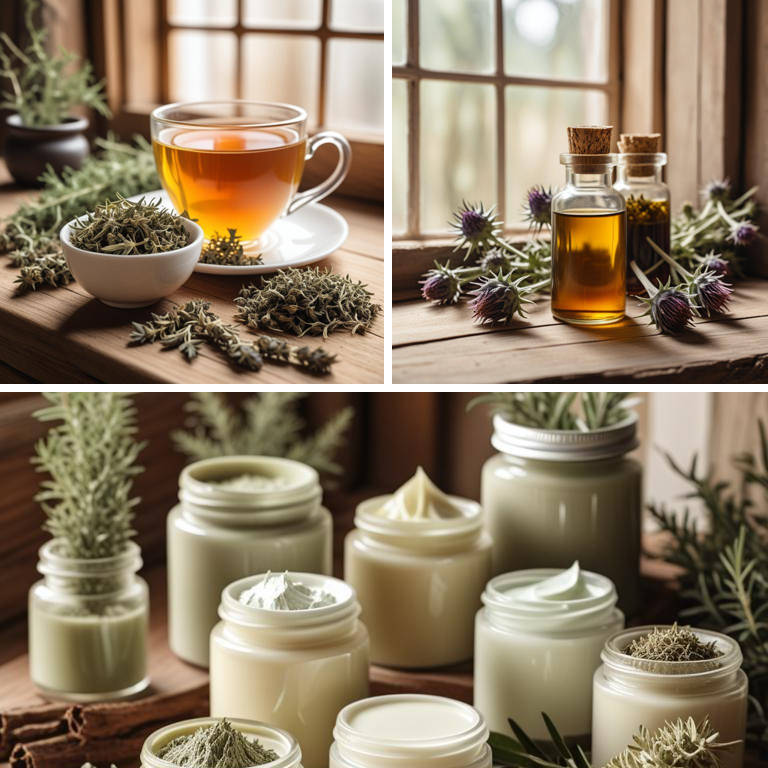
Herbal preparations can be really helpful for ingrown hair.
One good option is a tea made from chamomile, calendula, or lavender. These herbs have anti-inflammatory properties that can reduce redness and swelling. You can soak a warm compress in the cooled tea and apply it to the affected area to help bring the ingrown hair to the surface. Another option is a decoction made from herbs like plantain or chickweed. These herbs have a soothing effect on the skin, reducing itching and discomfort. To make a decoction, you boil the herbs in water for a few minutes, then let it cool. You can apply the cooled decoction to the affected area with a cotton ball.
A tincture made from herbs like witch hazel or tea tree oil can also be helpful. Tinctures are liquid extracts of herbs, and they can be applied directly to the affected area. Witch hazel has anti-inflammatory and antiseptic properties, while tea tree oil has antimicrobial properties that can help prevent infection. A salve made from herbs like aloe vera or comfrey can provide a soothing and protective barrier on the skin. Salves are thick, oily preparations that can be applied to the affected area to lock in moisture and reduce inflammation. You can apply a salve to the affected area several times a day to help speed up healing. Finally, a cream made from herbs like aloe vera or chamomile can provide long-lasting relief from ingrown hair. Creams are thicker and more moisturizing than lotions, and they can be applied directly to the affected area.
They can help reduce inflammation, itching, and discomfort, and can also help prevent ingrown hair from occurring in the first place.
Additional Resources:
Should you avoid using certain herbs if you have ingrown hair?
If you have ingrown hair, there are some herbs you should be careful with.
Silybum marianum, also known as milk thistle, can cause skin irritation, which might make ingrown hair worse. Ginkgo biloba is known to cause allergic reactions and skin sensitivity, so it's best to avoid it if you have ingrown hair. Glycyrrhiza glabra, or licorice root, contains a compound that can increase your blood pressure and make your skin more sensitive. This can lead to more inflammation and redness around ingrown hairs.
Quillaja saponaria, also known as soapbark tree, has a similar effect on the skin as Ginkgo biloba, causing irritation and sensitivity. Gleditsia sinensis, also known as gleditsia, is another herb that might worsen ingrown hair. It contains compounds that can dry out the skin and make it more prone to irritation. This can make ingrown hairs harder to treat and more painful.
If you're taking any of these herbs and you have ingrown hair, it's a good idea to talk to your doctor or a healthcare professional about alternative options.
FAQ
Are there any specific herbs that can prevent ingrown hair?
Some herbs like tea tree oil and chamomile are believed to help prevent ingrown hairs.
They have anti-inflammatory properties that can soothe and calm the skin, reducing irritation and redness.
Tea tree oil, in particular, has antibacterial properties that can help keep the skin clean and prevent infections that can lead to ingrown hairs.
Is it safe to use herbal remedies for ingrown hair during pregnancy?
It's best to be cautious when using herbal remedies during pregnancy.
Some herbs, like pennyroyal and rue, may not be safe for the fetus. Always check the ingredients and follow the instructions carefully. Look for products that are labeled as safe for pregnant women.
It's also a good idea to check with the manufacturer or read reviews from other pregnant women who have used the product.
Are there any herbs that can reduce the frequency of ingrown hair?
Some herbs like tea tree oil and aloe vera have antiseptic and soothing properties that can help reduce the frequency of ingrown hairs.
They can help keep the skin clean and calm, making it less likely for hairs to become trapped and cause irritation.
These herbs can be applied topically to affected areas.
Can i combine different herbal remedies for ingrown hair?
Combining herbal remedies for ingrown hair can be tricky.
Some herbs, like tea tree oil, might help reduce bacteria that cause infection. Others, like aloe vera, can soothe the skin. However, combining too many herbs can irritate the skin, making the problem worse.
Use caution and start with small amounts to see how your skin reacts.
Related Articles
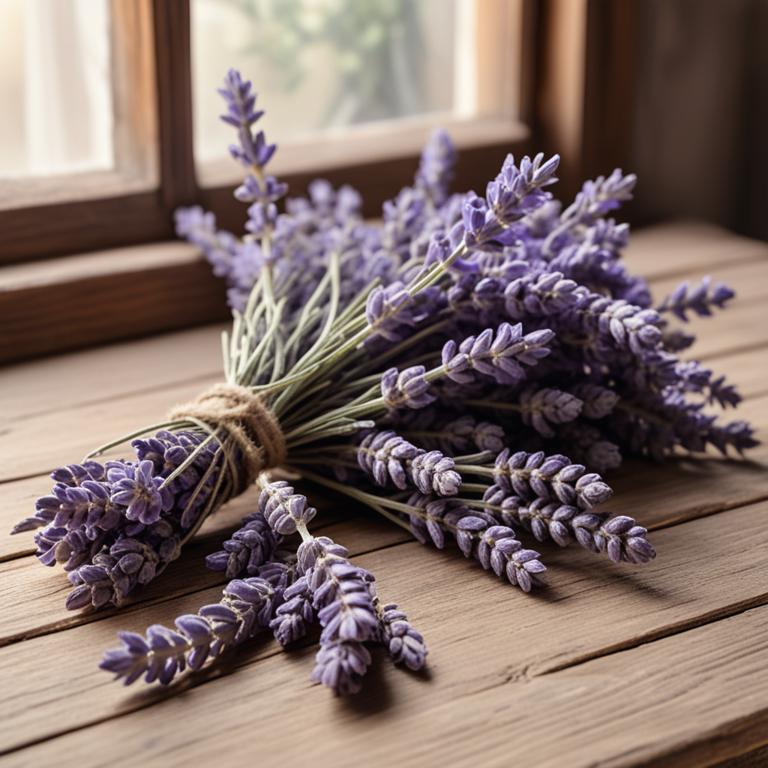
Natural Remedies for Foot Odor Using Medicinal Herbs
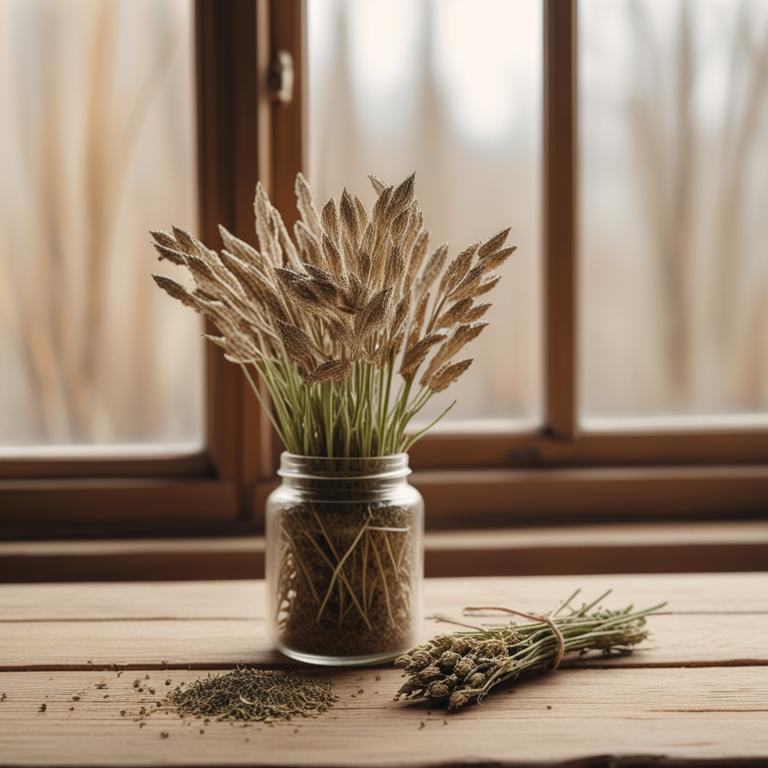
Treating Burns: Common Causes, Herbal Remedies, and Natural Preparations

Reddened Corners in Mouth: A Review of Medicinal Herbs and Herbal Preparations
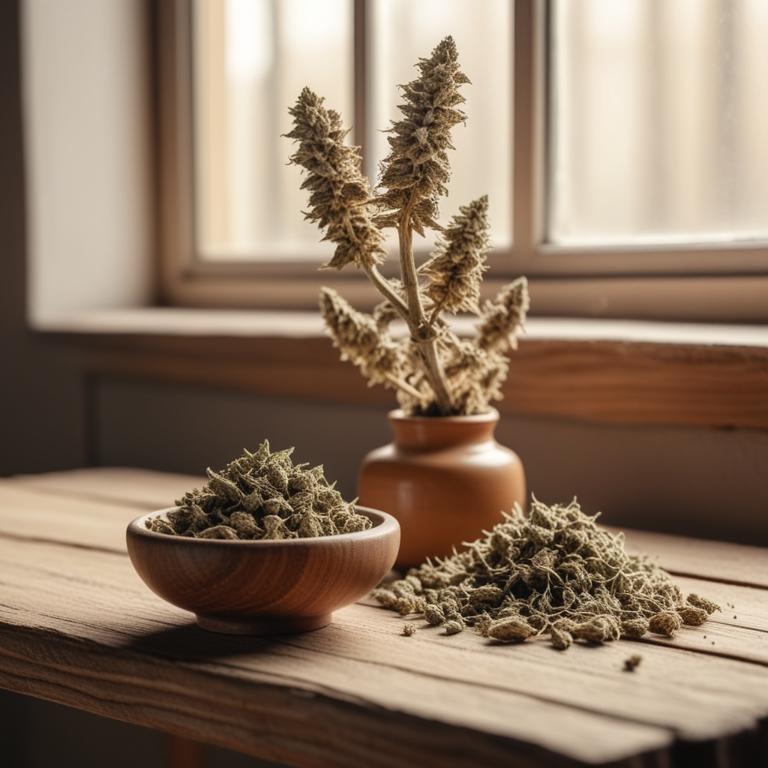
Dry Scalp and Herbal Remedies: Understanding Causes and Treatment Options

The Causes and Medicinal Herbs for Boils Treatment
